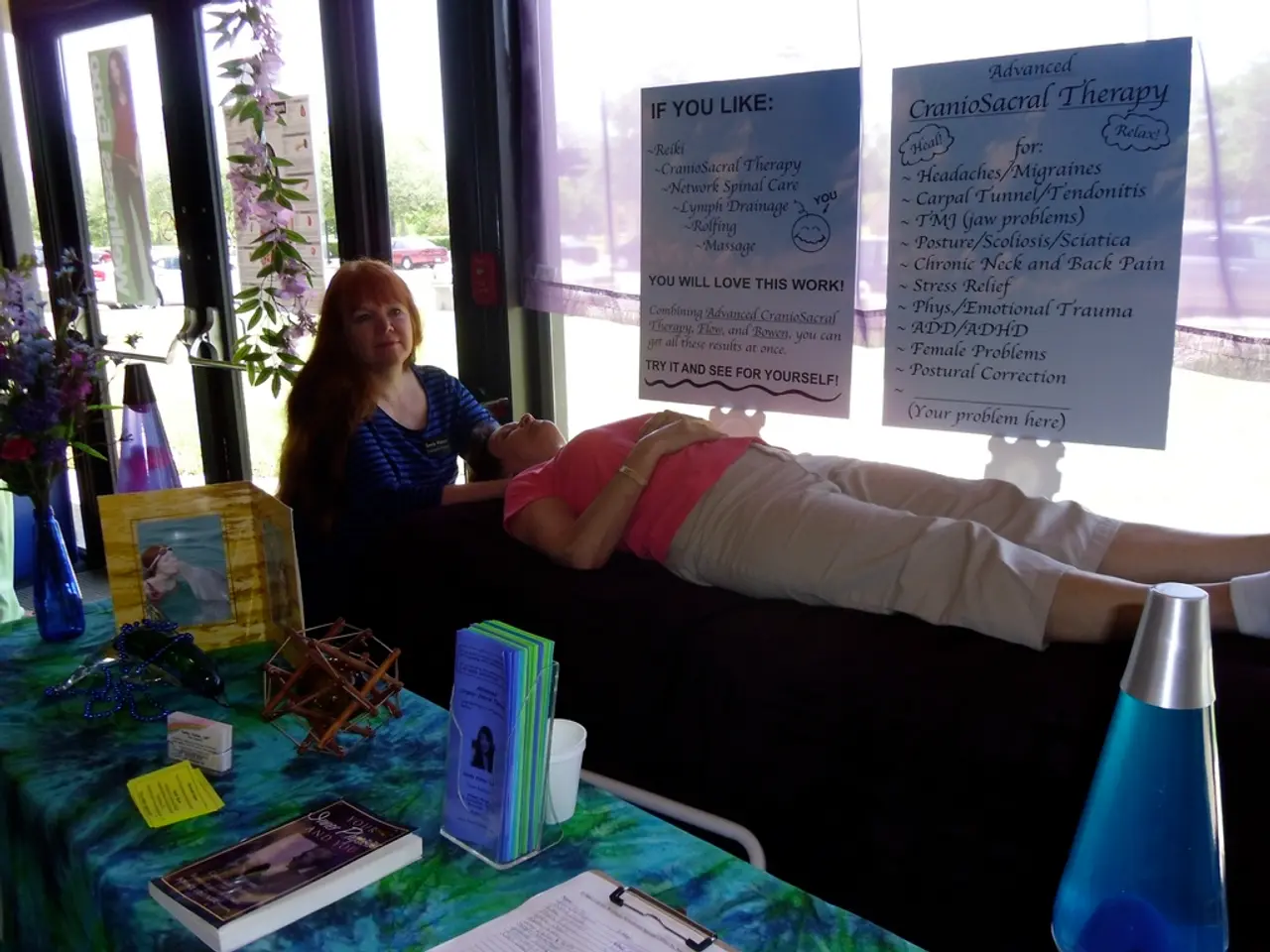Menopause: The Natural End of Fertility and Menstruation in Women
Menopause, a natural biological process marking the end of a woman's reproductive years, typically occurs between the ages of 45 and 55, with the average age being around 51. This article aims to provide a clear and concise understanding of menopause, its stages, symptoms, and available treatments.
Menopause can be divided into three stages: perimenopause, menopause, and postmenopause. Perimenopause, the transitional phase leading up to menopause, often starts in a woman's 40s, and is characterized by hormone level fluctuations. Common symptoms during this phase include irregular periods, hot flashes, sleep disturbances, mood swings, and vaginal dryness.
Menopause is officially diagnosed after a woman has gone 12 consecutive months without a menstrual period, signifying the end of fertility. Common symptoms at this stage include hot flashes, night sweats, weight gain, bone density loss, changes in libido, and memory issues.
Postmenopause follows menopause and lasts for the rest of a woman's life, with hormone levels stabilizing at a lower level, and many menopause symptoms may ease.
Strategies to manage menopause symptoms include maintaining a healthy lifestyle, using supplements, considering hormone replacement therapy (HRT), and practicing stress management techniques. Nutrition plays a vital role in managing menopause symptoms, with an emphasis on increasing calcium and vitamin D, staying hydrated, and limiting caffeine and alcohol. Regular exercise, a mix of aerobic, strength training, and flexibility and balance exercises, can help manage weight, improve mood, and reduce the severity of menopause symptoms.
HRT is a common treatment for menopause symptoms, involving the administration of estrogen and sometimes progesterone. Systemic HRT, which involves taking estrogen and progesterone to alleviate symptoms like hot flashes and vaginal dryness, is most effective when started within 6-10 years of menopause and can help protect against bone loss and heart disease. Local HRT, including vaginal creams, inserts, and rings, is used for treating localized symptoms such as vaginal dryness and urinary issues.
However, HRT carries risks like increased blood clots, breast cancer, and stroke. Non-hormonal medications, such as antidepressants, gabapentin, and clonidine, can help manage specific symptoms. Selective Estrogen Receptor Modulators (SERMs) help with hot flashes and osteoporosis, while antidepressants can reduce hot flashes and improve mood. Gabapentin helps alleviate hot flashes and improve sleep, and oxybutynin is used for managing hot flashes when other options are not suitable.
Lifestyle changes, such as dietary adjustments, regular exercise, and stress management, can significantly improve the quality of life during menopause. Behavioral therapies, including cognitive behavioral therapy and clinical hypnosis, have shown some efficacy in reducing vasomotor symptoms. Herbal and supplemental treatments, such as black cohosh, flaxseed, evening primrose oil, and red clover, are popular menopause supplements, although their effectiveness is not universally accepted.
Understanding menopause in different cultures can help women navigate their experiences more effectively. For more information on menopause, consider visiting reputable health websites, consulting with healthcare professionals, or joining support groups focused on women's health.
Menopause can significantly impact a woman's physical and emotional health, and understanding it is crucial for seeking appropriate support and treatment. It is essential for women to prepare for changes and seek support during this transition. Stress management is crucial during menopause, with techniques such as meditation, deep breathing exercises, and journaling providing emotional relief. Acupuncture, yoga, meditation, herbal remedies, and stress management techniques are alternative therapies that may help manage menopause symptoms.
In conclusion, menopause is a natural process that every woman will experience. By understanding its stages, symptoms, and available treatments, women can better prepare for the changes that come with this transition and manage their symptoms effectively.
Women experiencing menopause may benefit from understanding its connection to health-and-wellness, particularly women's health. Menopause can be affected by science, such as the use of hormone replacement therapy (HRT) and other treatments. For instance, HRT, which involves the administration of estrogen and progesterone, can help manage symptoms like hot flashes and vaginal dryness, but it also carries risks like increased blood clots, breast cancer, and stroke. Therefore, considering options like stress management techniques, behavioral therapies, or herbal remedies could provide additional support during menopause, facilitating a better understanding of menopause across different cultures and aiding women in navigating this transition effectively.




